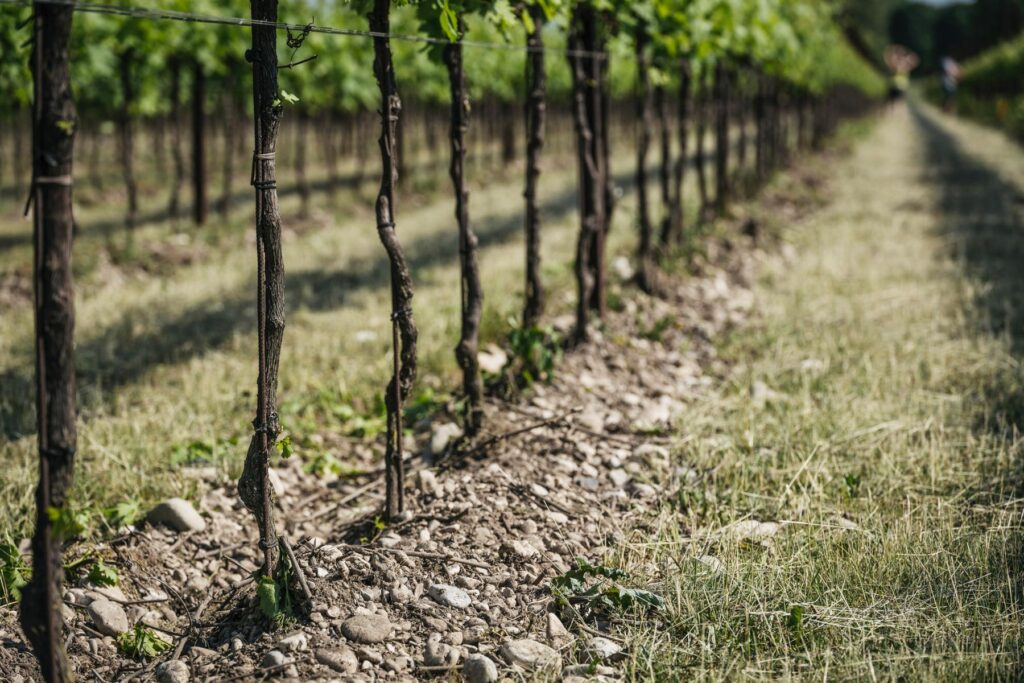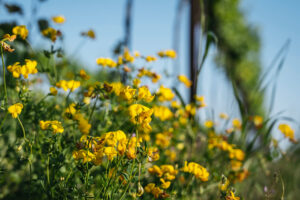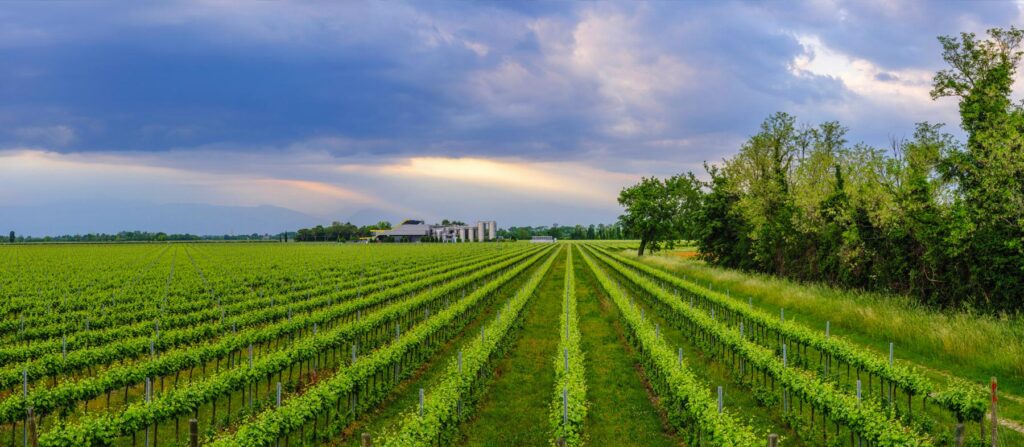PHILOSOPHY



To limit fertiliser inputs and increase the substrate, we cut the vine shoots in the field, but, above all, we practice green manuring, which consists of inter-row sowing of herbaceous mixtures followed by burying the chopped turf, restoring organic matter to the soil and improving its physical and structural characteristics (increased water retention and resistance to erosion), fixing atmospheric nitrogen to the soil, exerting a bio-control action on pathogenic fungi and nematodes, and increasing biodiversity.
Almost all of our 260 hectares planted with vines have a drip line irrigation system consisting of a micro-perforated tube placed just a few centimetres below the turf that allows for sustainable irrigation without wasting water. We have also installed Phytobac, a natural system for the biodegradation of pesticide residues present in waste water from washing agricultural equipment.

Secondly, we transformed the winery when we had to move from the original site in Camino al Tagliamento. We opted for a modern winery inside and out, nestled in the middle of our vineyards. Inaugurated in 2014, it is completely carbon-free as all energy is produced using a 180 kW photovoltaic system.
Its architecture is designed to blend into the landscape, while its location at the heart of the company’s main estate means a reduced use of motor vehicles and consequently lower air pollution and consumption of fossil fuels.
Bottling takes place directly in the cellar, in a sterile environment and with automated technology for quality control, using ‘light’ bottles that reduce the amount of CO2 released into the atmosphere during glass processing.


